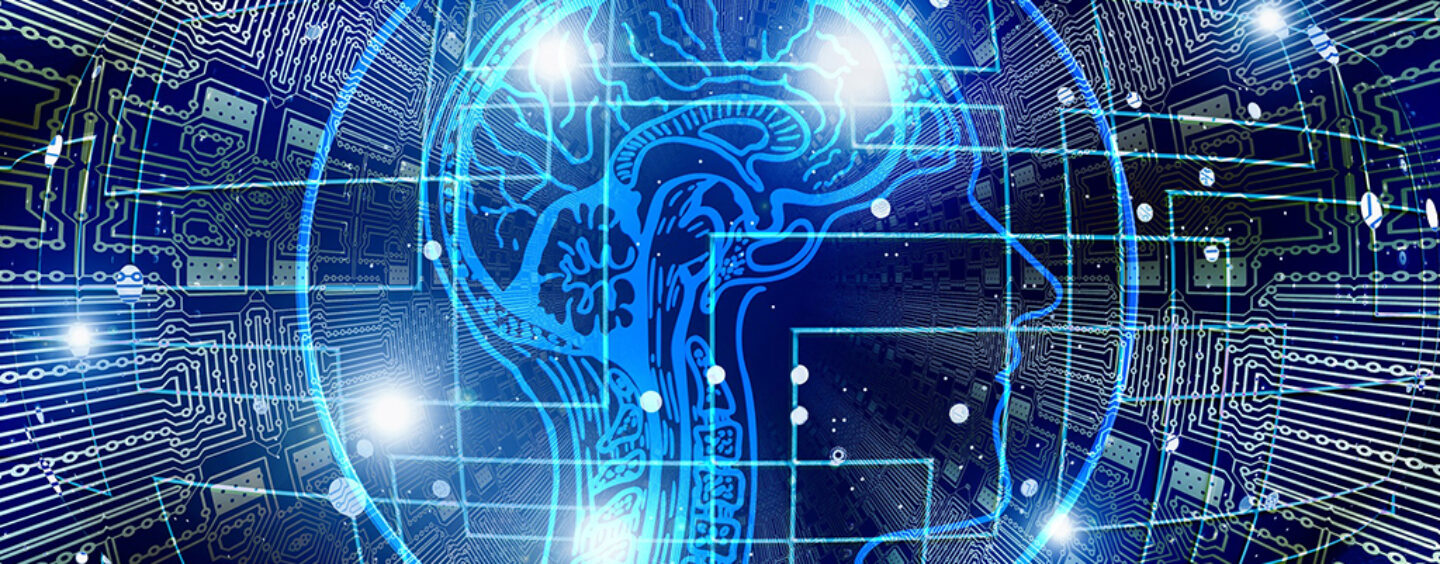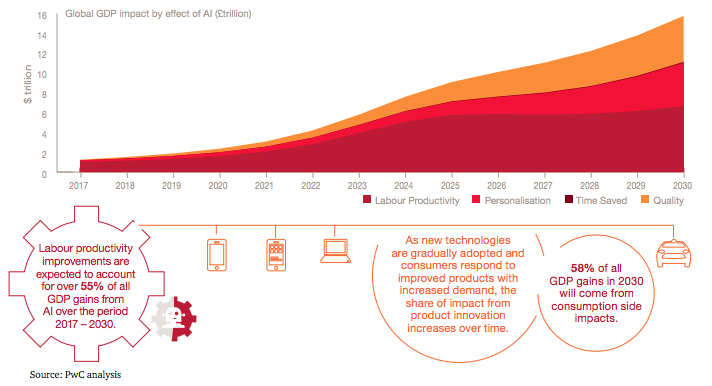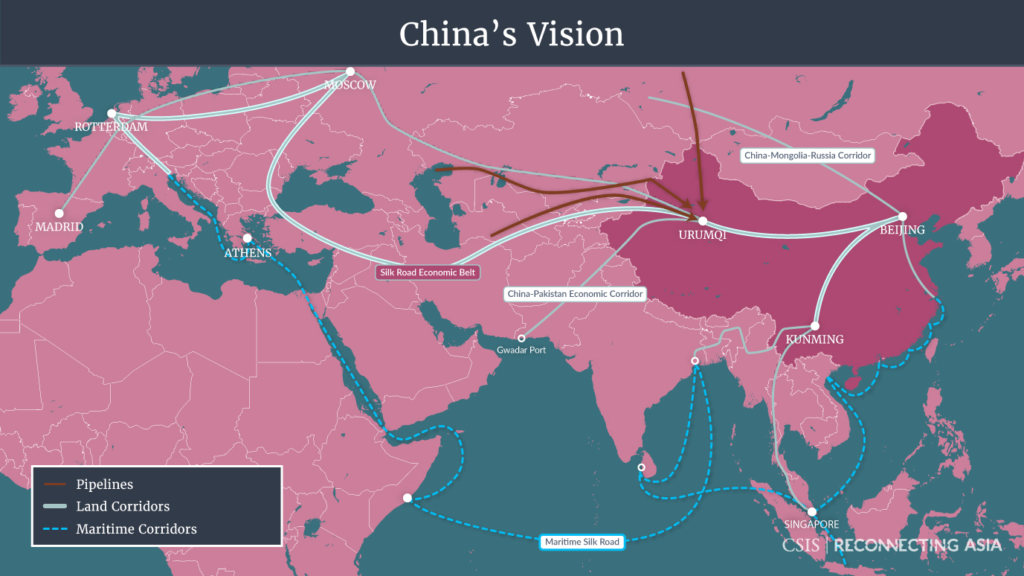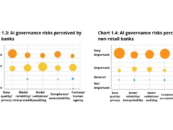
China’s Top Tech Companies Get Real About Artificial Intelligence
by Patrick Rivera February 6, 2019For a moment, when thinking about “Artificial Intelligence,” try to erase from your mind images of robots bent on the complete destruction of the human race popularized by science fiction. AI’s banal practicalities far exceed its nefarious reputation, and it’s time CEO’s started to listen to the reality, not just the hype.
But there is certainly a lot of hype and even fear out there.
“AI is a fundamental risk to the existence of human civilization,”
says Elon Musk, who urges greater government regulation and oversight. I personally prefer Sam Altman’s cheeky observation,
“AI will probably most likely lead to the end of the world, but in the meantime, there’ll be great companies.”
Artificial Intelligence (AI) refers to computer systems that try and think and act like human beings, that is they are built to think and act rationally — to the extent human beings can be said to think and act rationally.
It will not be perfect. It will be messy. And yes, the machines will make mistakes. However, the benefits should greatly outweigh the costs, especially if the rollout of AI is thoughtful and measured.
PricewaterhouseCoopers recently published a report estimating that AI could contribute up to $15.7 trillion to the global economy in 2030, more than the current output of China and India combined. Of this, $6.6 trillion is likely to come from increased productivity and $9.1 trillion is likely to come from consumption-side effects. The report suggests the greatest gains from AI will be in China with a 26% boost to GDP in 2030.

Many industries are already in the middle of a transformational process as AI is integrated with existing enterprise, industrial, and consumer product and service ecosystems. AI will soon be embedded in business operations at all levels, including supply chains, sales, and marketing processes, product and service delivery and customer support.

Dr. Steve Deng, Chief AI Scientist for MATRIX AI Network
“The surge of AI development comes from three primary factors: first, the improvement of social digitalization allows us to collect data at an unprecedented scale and speed; second, the improvement in computing capabilities, especially the emergence of image processors, has enabled many computationally intensive AI applications to complete training and inference in a time people cannot; third, the development in machine learning and neuroscience over the past six decades has made deep neural networks and other algorithms more advanced,”
explains Dr. Steve Deng, Chief AI Scientist for Matrix AI Network, a Hong Kong-based blockchain and AI technology company.
Made in China 2025 (MIC 2025), a ten-year, comprehensive blueprint aimed at transforming China into an advanced manufacturing leader, outlines the country’s strategic plan for dominance in AI. In 2017, 48 percent of total equity funding of AI start-ups globally came from China, compared to 38 percent funded by the US, and 13 percent by the rest of the world. China’s patents in the AI industry accounted for about 22 percent of the total globally, according to an official with the Ministry of Industry and Information Technology (MIIT).
In July 2017, China’s State Council published a roadmap for the country to become “the world’s primary AI innovation center” by 2030. The plan aims to grow the country’s core AI industries to over 150 billion yuan ($24 billion) by 2020 and 400 billion yuan ($63 billion) by 2025 and be the world leader in AI by 2030.
China’s far-reaching ambitions will have a global impact. It is planning to recreate the ancient Silk Road with its 21st century “One Belt, One Road” initiative that will cost between $1 trillion and $8 trillion and connect 65 countries. MATRIX AI Network is the blockchain and AI partner for the state-owned Belt and Road Development Centre and is an example of the potential that can be unleashed when state investment and private enterprise collaborate.
“The early results of our AI work have been very promising, and this is really just the beginning,”
explains Dr. Deng. MATRIX AI Network is merging artificial intelligence and the blockchain to leverage natural language programming and adaptive deep learning-based templates to auto-code smart contracts. Users are only required to input the core elements (e.g., input, output, and transaction conditions) of a contract with a scripting language. Then a code generator based on a deep neural network is able to automatically convert the script into an equivalent program.
To enhance transactional security, MATRIX’s Secure Virtual Machine is able to detect attacks on transactions by providing AI-backed vulnerability detection with fault-tolerant protocols. To put it another way, the MATRIX team has introduced formal verification technology during transactions to detect security vulnerabilities.
MATRIX AI Network’s proprietary high-performance Bayesian artificial intelligence learning algorithm can learn and generate a new category node after analyzing as few as 20 examples. This is nearly an order of magnitude more efficient than human learning. This artificial learning algorithm dramatically improves the efficiency of machine learning and has wide potential application.
Richard Liu, founder and CEO of JD.com, one of the world’s largest e-commerce companies, has set his company on a course for automation, with a commitment to AI, robotics, and big data, investing a remarkable 30 billion yuan ($4.5 billion) in an AI-powered retail research center.
“I hope my company would be 100% automation someday…no human beings anymore, 100% operated by AI and robots,”
Alibaba, Tencent and Baidu are also making extraordinary gains in AI. The Chinese science ministry announced in early 2018 that the country’s open AI platforms will rely heavily on Baidu for autonomous driving, Tencent for AI in healthcare, and Alibaba for smart cities.
Alimama, the digital marketing unit of Alibaba, released an artificial-intelligence-enabled Chinese language copywriting tool that it says passed the Turing test, in which humans cannot detect whether the work product came from a human or a computer, and can produce 20,000 lines of copy a second.
Other leading Chinese companies entering and shaping the AI space include: DJI, a leading drone manufacturer that has been moving into AI and image analysis; Ubtech Robotics, robot development company; SenseTime, an image recognition tech company; Cambricon, a semiconductor and AI chip company; and Cloudwalk, pioneering facial recognition and 3D scanning technology. Each of these Chinese companies shares a common narrative of strong funding, a commitment to R&D, outstanding executive leadership, and world-beating technology.
“The new spring in artificial intelligence is the most significant development in computing in my lifetime,” writes Google co-founder Sergey Brin in his company’s 2017 Founder’s Letter. “Every month, there are stunning new applications and transformative new techniques.” However, he adds, “such powerful tools also bring with them new questions and responsibilities.”
The proliferation of revolutionary AI technologies, with the active support and encouragement of the Chinese government, is expected to usher in an unprecedented era of advancement in healthcare, autonomous driving, logistics, supply chain management, urban planning, retail commerce and more. There was a long time when China was accused, not unfairly, of copying the world’s best technology. In a hint of irony, when it comes to AI, the world will be racing to copy and catch up to China.
 Author Bio: Patrick Rivera is a freelance technology writer from Sugar Land, Texas. Patrick covers business, finance, and technology, with a particular interest in blockchain and AI-related stories.
Author Bio: Patrick Rivera is a freelance technology writer from Sugar Land, Texas. Patrick covers business, finance, and technology, with a particular interest in blockchain and AI-related stories.









